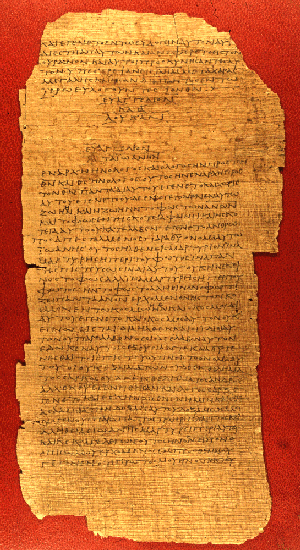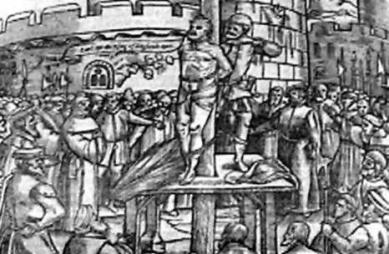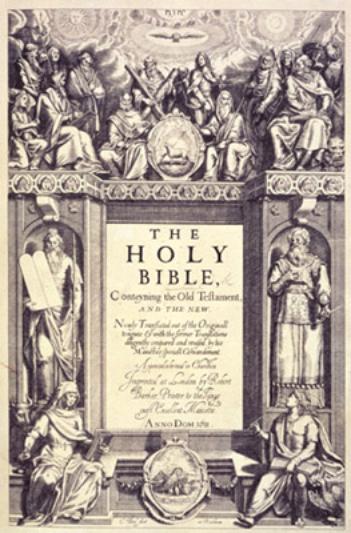 +
+  =
= 
 +
+  =
= 
Transmissions,
Car and Bible
A Rabid Fundamentalist Column
c.2005
by
John W. Cowart
If Jesus had owned a second-hand car, it would be easier for us to be Christians today.
That's what a computer repairman whose car broke down near the library told me. This poor guy -- a fundamentalist Christian half under his car in 98 degree heat-- asked, "What would Jesus do about mechanical things that don't work?"
The car's transmission died and the exasperated man, struggling with temptation, observed that the only thing Jesus ever cursed was a barren fig tree.
The only comfort I could think of to offer, besides giving him a ride home, was what I always think when my own car breaks down, "An old car is a fig tree on wheels."
In case you're wondering, that's not a Bible verse.
However, the Bible, while not mechanical, does have a transmission.
Transmission, whether in a car or a Bible, is the process by which power is moved from its source to where it's needed; from motor to wheels, from God to the person whose car -- or life -- has broken down.
 There are scientists who devote their whole lives to studying the transmission of the Bible. According to their various approaches, they are called (among other things, depends on who is doing the calling) paleographers, textual critics, higher critics, translators or papyrologists.
There are scientists who devote their whole lives to studying the transmission of the Bible. According to their various approaches, they are called (among other things, depends on who is doing the calling) paleographers, textual critics, higher critics, translators or papyrologists.
These scholars talk in terms of the Wellhausen Theory, kenosis, internal and external evidence, P, Q, J, E, and "radical reconstructions".
When you hear an automobile mechanic talk like that you know you're in trouble.
Therefore, in the interest of Bible-believing car owners everywhere, here is a fundamentalist nut shell view (Editor: please be careful of how you hyphenate the words fundamentalist nut) of Bible transmission -- how it got from God to us:
First off, God inspired people to write. The word inspired means in the Bible the same thing it does in a hospital -- breathing. (Inspired is good, it means you're living; expired, you're dead). God breathed something into the Bible writers and they wrote it down.
 The inspiration of God did not change the humanity of those writers, they still scratched when they itched. But, like a fresh breath, it charged them with life.
The inspiration of God did not change the humanity of those writers, they still scratched when they itched. But, like a fresh breath, it charged them with life.
Picture four sail boats sailing from here to there; a four-masted schooner, an outrigger canoe, a catamaran, and a rowboat with a sail hung from a broomstick. The crews of the four boats have their individual personalities, characteristics and quirks. Each moves at his own speed and in his own style. But all four arrive at the same place driven by the same wind.
 In writing Scripture holy men of God, each highly individualistic, were moved along to the same place by the Single Wind of the Spirit.
In writing Scripture holy men of God, each highly individualistic, were moved along to the same place by the Single Wind of the Spirit.
Some writers, such as Moses, wrote a lot, a five volume set; others, such as Obadiah, wrote a little, one page.
Both probably wrote on parchment or vellum -- a paper made of goat skin. Moses used a lot of goats. Obadiah may have gotten by with a rabbit.
The big sections of the Bible were published as scrolls; little sections may have been for handing out as religious tracts. As time passed, people collected all the individual writings into one volume; that's our Bible, a collection of individually written sections called Bible books.
Some Bible books record history; some were songs; some, legal documents, some, like the four Gospels, were character sketches; others were letters to individuals or groups.
All were breathed by God.
None tell us how to repair cars.
All tell us how to get along with each other -- and with God.
But, hey, wait a minute here. If these words were so important to God, how come these books were all hand written and hand copied for generations?
 Doesn't that mean the Bible we have today got messed up when some writer's hand cramped and he didn't copy his lines right? What about Bible transmission then?
Doesn't that mean the Bible we have today got messed up when some writer's hand cramped and he didn't copy his lines right? What about Bible transmission then?
Good point.
Ever wonder why, if they are so valuable, diamonds are split by hand?
Ever wonder why a Rolls Royce is more valuable that a Yugo? Why a precision Swiss watch is more valuable than a Timex?
In each case, the one is hand-crafted individually; the other, mass produced. Precision hand-crafted workmanship is what you want for solid value and God's word has not come to us cheap.
Many people, such as Jan Hus and Archbishop Cranmer, were burned as the stake for transmitting the Bible to us. Khomeini was not the only religious person to have a thing about books. Aren't you glad that our Constitution's First Amendment links freedom of the press and freedom of religion in practically the same breath?
Now God breathed his word of life into the Bible writers for people to read. Originally, the Bible was written in the languages of the people, Hebrew and Greek.
 By the year A.D. 383, not many people could still read biblical languages, so Saint Jerome translated the Bible into a language everyone in his day could understand -- Latin. His translation was called the Vulgate, meaning the common language Bible.
By the year A.D. 383, not many people could still read biblical languages, so Saint Jerome translated the Bible into a language everyone in his day could understand -- Latin. His translation was called the Vulgate, meaning the common language Bible.
However, by 1382, not many people in England read Latin anymore, so John Wycliffe translated the Bible into the English of his day. In 1525, William Tyndale did it again. Upset literary critics tied him to a stake and strangled him for his trouble.

In 1582, English Catholics published the Douay bible. In 1611, a committee authorized by King James issued the translation known by his name -- or by his initials, KJV.
In fact, King James started the Bible initial craze; today, you can read God's word in  your RSV, NEB, TEV, NIV, BVDS, or LB.
your RSV, NEB, TEV, NIV, BVDS, or LB.
RSV is the Revised Standard Version; NEB is the New English Bible; TEV is Today's English Version; LB is the Living Bible; NIV is the New International Version; and, of course, BVDS is any Bible you can read lounging around the house in your underwear. 
The important thing is to read the Bible; God has a way of speaking to your need no matter which Bible you read.
Saint Paul summed it up best when he said, "All scripture is given by inspiration of God and is profitable ... that the man of God may be perfect, thoroughly furnished unto all good works."
That's fundamental.
----------------------------------
Thank you for visiting www.cowart.info
I welcome your comments at John’s Blog!
You can E-mail me at cowart.johnw@gmail.com
Return to John’s Home Page
You can view my published works at 